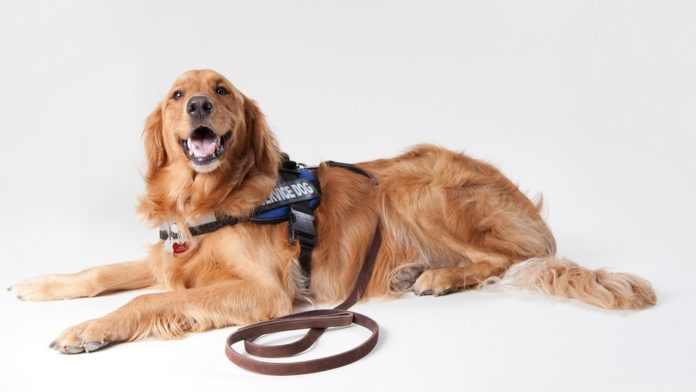Bio detection dogs are extra special little helpers. These pups use their powerful sniffers to detect biomarkers for diseases in their owners long before symptoms show up.
Odours indicative of various cancers and other diseases like Parkinson’s can appear in the urine, sweat, and breath of humans, and these dogs are able to assess samples using their incredible sense of smell.
Naturally, you can’t put a price on the value of early detection when it comes to life-threatening diseases. What’s remarkable about bio detection dogs is not just how quickly they can alert their owners, but also their accuracy.
Cancer leaves smelly tracks behind
The theory behind bio detection dogs is based on volatile organic compounds that are released early in the disease process by cancer cells.
Canines can detect odours at a concentration as low as one part per trillion, the equivalent of a teaspoon of sugar in two Olympic-sized swimming pools. This is because dogs have a huge amount of scent receptors – up to 300 million (humans have only five million).
As a tumour grows, changes can occur within cellular proteins. This leaves the cell membrane vulnerable to damage through oxidation, leading to byproducts such as volatile organic compounds which the dogs can smell.
Several independent studies since 2004 have shown a 90% success rate at identifying cancer samples. A+ for the doggies.
Efforts underway to establish in Canada
Medical Detection Dogs UK, headed by researcher and CEO Claire Guest, has been a pioneering force in this field of research for a decade now.
A grand ambition of theirs is to create a nanosensor that would search for the same scents as the pups, offering a “cheap, non-invasive, reliable way of diagnosing cancer early,” says Guest.
Even if machines eventually catch on, the dogs can still be extremely useful, especially with elusive conditions like prostate cancer, which can be difficult to identify.
Prostate-specific antigens (PSAs) are proteins released by both healthy and cancerous cells in the prostate gland. PSA tests are often riddled with false positives because of the ambiguity between the cellular source of the protein, so a high PSA count doesn’t necessarily mean you have cancer.
Guest believes that the dogs could further screen samples with high PSA levels to cut down the false positive rate and help to get an accurate assessment.
“The two tests combined could give a much higher level of predictability and therefore could save thousands of lives,” says Guest.
Efforts to establish a Canadian presence are being spearheaded by Bio Detection Dogs Canada: “I’ve started the training process with a small group of dogs to teach them to alert me to a specific scent (not cancer),” says head trainer Liz Dick.
“This is only the first stage of the training process; in order to continue, I will need to partner with an oncology unit, research centre, university, or hospital in order to get samples from people with cancer.”
It may be some time before such dogs are in Canadian homes, but someday you or a loved one might be saved by a fluffy best friend or tech based on their powerful snooters.








































